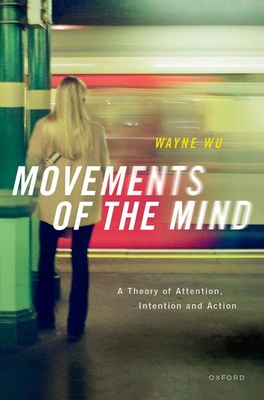Movements of the Mind is about what it is to be an agent. Focusing on mental agency, it integrates multiple approaches, from philosophical analysis of the metaphysics of agency to the activity of neurons in the brain. Philosophical and empirical work are combined to generate concrete explanations of key features of the mind. The book should be relevant and accessible to philosophers and scientists interested in mind and agency.
Wu argues that actions have a core psychological structure where attention plays a necessary role in guiding the agent's response and intentions function as memory for work, a practical memory. Attention and memory are accordingly central parts of an agent's intentionally doing things. These claims are supported by synthesizing philosophical and empirical work to produce a theory of intention and attention in action. The account explains three phenomena of current philosophical interest: (a) the basis of positively and negatively biased action where attention often leads to implicit bias, (b) the dynamics of deductive reasoning as the focusing of a thinker's cognitive attention and the development of cognitive skills, and (c) the psychology of introspective access to conscious perceptual experience, making clear when introspection can intelligibly fail and when it can succeed.
The book provides a theory of agency, whether human or non-human, along with technical notions of automaticity and control, a theory of attention as selection to guide behavior, an account of intention as memory whose dynamics are revealed in empirical investigation of working memory, explications of sustained attention and vigilance, an explanation of biased behavior driven by biases on attention, normative aspects of attention as a skill, the role of learning in cognitive skill, a theory of deduction as a sharpening of attention, and a psychologically plausible model of introspection that speaks to its accuracy and reliability.












